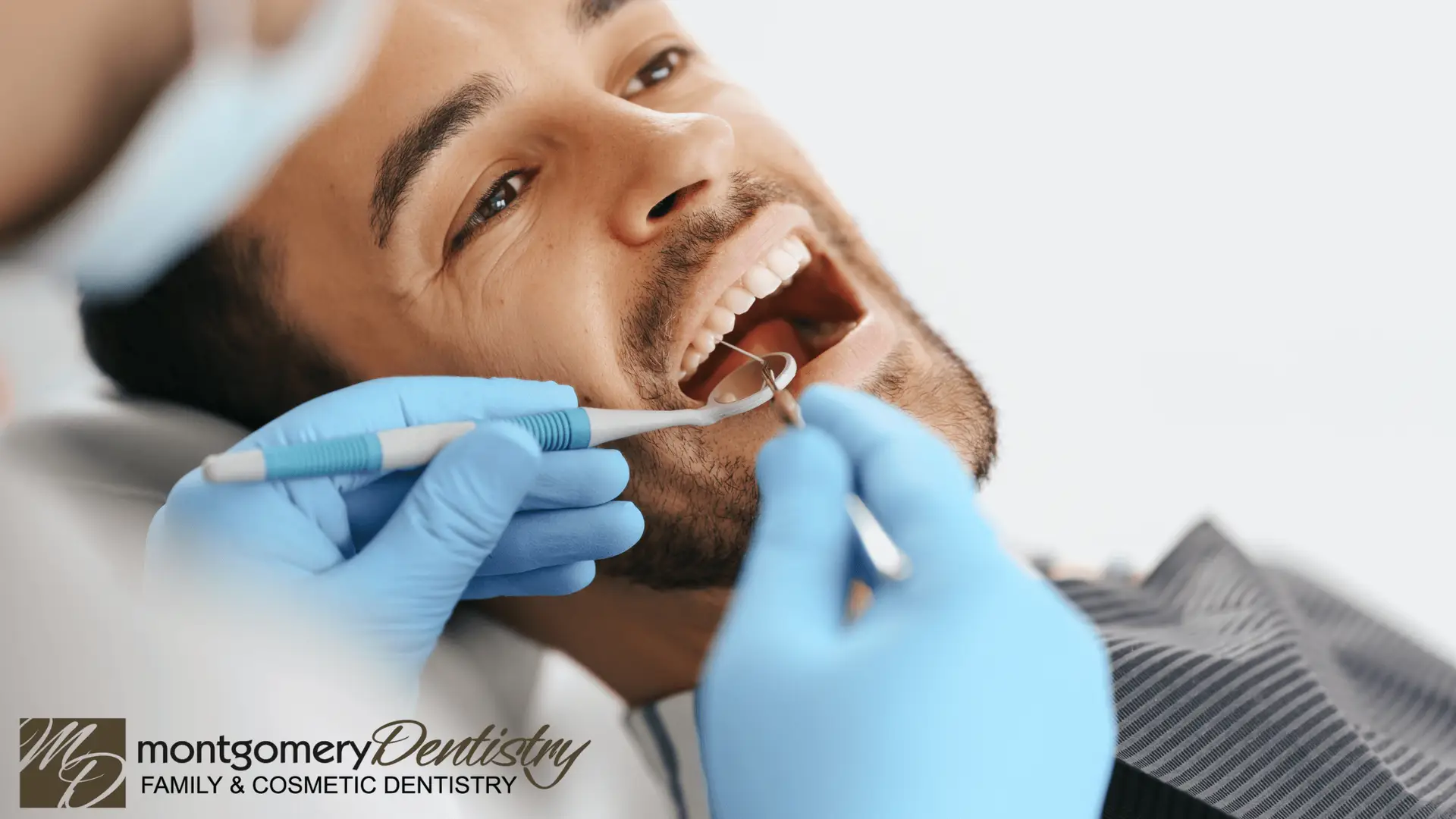In the world of dentistry, myths and misconceptions often abound, leading many to make decisions about their oral health based on misinformation. At Montgomery Dentistry, we want to equip our pantients to make wise choices about their dental health. This month on the blog, we’re debunking some of the most common dental myths to help you make informed decisions about your oral care. Let’s dive in and separate fact from fiction.
Myth #1: Sugar is the Main Culprit
One of the most widely spreadmyths about dental health is that sugar is the primary cause of tooth decay. While it’s true that sugar can contribute to the formation of cavities, it’s not the only factor at play. Bacteria in the mouth feed on sugars and produce acids that can erode tooth enamel, leading to decay. However, other factors such as poor oral hygiene, acidic foods, and genetic predisposition also play a role in dental decay. Therefore, while it’s essential to limit sugar intake, it’s equally important to maintain good oral hygiene habits, eat a healthy diet, and visit your dentist regularly for check-ups and cleanings.
Myth #2: Brushing Harder Means Cleaner Teeth
Contrary to popular belief, brushing harder does not equate to cleaner teeth. In fact, aggressive brushing can damage tooth enamel and irritate the gums, leading to gum recession and tooth sensitivity. The key to effective brushing is not force but technique. Dentists recommend using a soft-bristled toothbrush and gentle, circular motions to remove plaque and debris without causing harm to the teeth and gums. Additionally, be sure to brush for at least two minutes twice a day and don’t forget to clean the surfaces of your tongue and roof of your mouth for optimal oral hygiene.
Myth #3: Flossing is Optional
Some people believe that flossing is optional or less important than brushing, but nothing could be further from the truth. Flossing is an essential part of oral hygiene as it helps remove food particles and plaque from between the teeth and along the gumline where toothbrushes can’t reach. Skipping flossing can increase the risk of cavities, gum disease, and bad breath. Make it a habit to floss at least once a day, preferably before bedtime, to keep your teeth and gums healthy.
Myth #4: Bleeding Gums are Normal
If your gums bleed when you brush or floss, it’s easy to dismiss it as normal. However, bleeding gums are not something to ignore. In most cases, bleeding gums are a sign of gum disease, a bacterial infection that can lead to serious oral health problems if left untreated. Other possible causes of bleeding gums include aggressive brushing, hormonal changes, and certain medications. If you experience persistent bleeding gums, be sure to see your dentist for an evaluation and proper treatment.
Myth #5: Teeth Whitening isn’t Safe
Teeth whitening has become increasingly popular in recent years, but some people worry that it may be harmful to their teeth. The truth is that when done properly, teeth whitening is a safe and effective way to brighten your smile. Professional teeth whitening treatments administered by a dentist use safe concentrations of whitening agents to minimize the risk of sensitivity and damage to the teeth and gums. However, over-the-counter whitening products and DIY remedies may not be as safe or effective and could potentially harm your dental health. Before whitening your teeth, consult with your dentist to determine the best approach for your specific needs.
Myth #6: Tooth Loss is Genetic
While genetics can play a role in dental health, tooth loss is not solely determined by your genes. Factors such as oral hygiene habits, diet, lifestyle choices, and access to dental care also influence the health of your teeth and gums. Even if you have a family history of tooth loss, you can take steps to prevent it by practicing good oral hygiene, eating a balanced diet, avoiding tobacco products, and visiting your dentist regularly for preventive care.
Myth #7: Dental Health Has No Connection to Your Overall Health
Some people believe that dental health is separate from overall health, but the reality is that the two are closely linked. Poor oral health has been linked to an increased risk of various systemic conditions, including heart disease, diabetes, respiratory infections, and pregnancy complications. Additionally, certain medical conditions and medications can affect oral health, making regular dental check-ups essential for maintaining overall health and well-being.
Want to keep your teeth and gums in the best shape? Schedule a regular dental checkup at Montgomery Dentistry.You’ll get a professional cleaning, a thorough examination, and most importantly – answers. Any doubts or concerns you have about your dental health? Our dentists are here to clear them up.
Ready to book your next dental checkup? Give our office a call at 334-279-0760. Trust Montgomery Dentistry to guide you through the maze of dental myths and facts!
About the Author
-

Dr. Jay L. Robertson
Dr. Jay Robertson joined our practice in July 2008. He is from Montgomery and is a graduate of Saint James School, Birmingham-Southern College, and the University of Alabama, Birmingham School of Dentistry. He is a member of the American Dental Association, the Alabama Dental Association and the Academy of General Dentistry.
Dr. Robertson and his wife Jennifer have four children, John Campbell, Julian, Lowe, and Ansley.
Dr. Robertson serves on the board of the Montgomery Quarterback Club and is a member of the First United Methodist Church of Montgomery. When not at work, Dr. Robertson enjoys all things sports, including Auburn, golf, and his children’s various sports.
